#indigenista
Explore tagged Tumblr posts
Text
#encontré este cuento de Ciro Alegría buscando la letra de una canción citada en el texto#no me sorprende mucho que la literatura indigenista se parezca bastante a la literatura rusa después de la emancipación de los siervos#el romanticismo por el campesinado#las actitudes paternalistas de los superiores sociales europeizados#autodenominados defensores o promotores de las llamadas comunidades tradicionales#consideradas las representantes del verdadero país#me hizo recordar a Tolstoy y al muzhik Marei de la granja de los padres de Dostoyevsky
2 notes
·
View notes
Text
Tribunal de Justiça do Maranhão nega recurso da mineradora Vale contra o Cimi
No dia 7 de janeiro, o Tribunal de Justiça do Maranhão (TJMA) negou um recurso da mineradora Vale S.A. contra a decisão da juíza Kátia Coelho de Sousa Dias, que indeferiu os pedidos da mineradora contra o Conselho Indigenista Missionário (Cimi) Regional Maranhão e as missionárias Madalena Borges e Rosana Diniz. A Vale solicitou que as missionárias cessassem com a interferência no relacionamento da empresa com os indígenas, especialmente no que diz respeito à ocupação da Estrada de Ferro Carajás pelos indígenas do povo Awá Guajá. A mineradora acredita que o Cimi está tutelando os indígenas, interferindo na relação entre a Vale e os indígenas.
No entanto, tanto a juíza Kátia Coelho quanto o TJMA não identificaram elementos suficientes que confirmem a conduta apontada pela mineradora. As missionárias Madalena Borges e Rosana Diniz criticaram a tentativa da Vale de criminalizar o movimento dos Awá e a insistência da empresa em atribuir ao Cimi a responsabilidade pela interdição da Estrada de Ferro Carajás. Elas afirmam que o movimento dos Awá foi legítimo e que os indígenas têm autonomia para realizar manifestações em favor de seus direitos.
2 notes
·
View notes
Text
#assassinatos#povos indígenas#terras indígenas#Kaingang Cacique Doble#RGS#Violência contra os povos indígenas#Conselho Indigenista Missionário#CNBB
0 notes
Text
José María Arguedas: Nacimiento, vida y obra de la Literatura Indigenista
José María Arguedas Altamirano (1911-1969) fue un escritor, poeta, antropólogo y traductor peruano. Considerado uno de los grandes exponentes de la literatura indigenista, su obra se caracterizó por la profunda exploración de la cultura andina y la reivindicación del mundo indígena. Infancia y juventud: Nacido en Andahuaylas, Apurímac, Arguedas vivió una infancia marcada por la discriminación y…
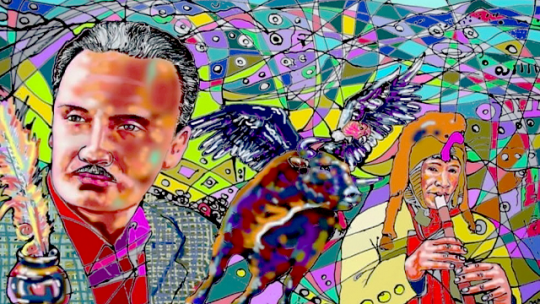
View On WordPress
#agua#Andahuaylas#antropólogo#Apurímac#Clorinda Matto de Turner#Enrique López Albújar#escritor#Franz Kafka#José María Arguedas Altamirano#José María Eguren#literatura indigenista#Los ríos profundos#poeta#traductor#William Faulkner#Yawar Fiesta
0 notes
Text
But Next Time Part 2: Language Justice and the Road to Recovery After Disaster (Encore)
But Next Time hosts Rose and Chrishelle pose for a photo with members of indigenous language radio show, Radio Autóctona Indigenista on KBBF.Credit: Leah Mahan This week we continue delving into community-rooted disaster relief in California, from wildfires to the pandemic. From building mutual aid networks, to translating emergency messages in common local languages, we see in action the…
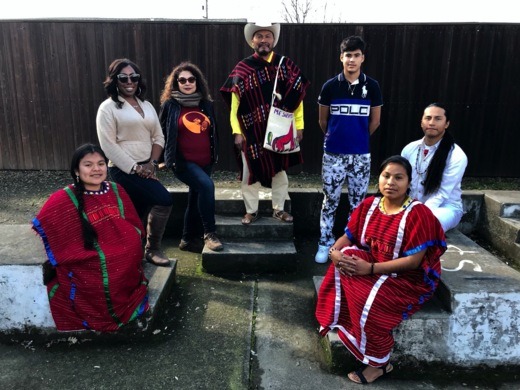
View On WordPress
#Alma Bowen#Beatrice Camacho#California#California Rural Legal Assistance#COVID-19#Gervacion Peña Lopez#Indigenous#KBBF#Latino Task Force#Mariano Alvarez#Maribel Merino#Mission District#Mutual Aid#North Bay Organizing Project#Nuestra Comunidad#Radio Autóctona Indigenista#San Francisco#Sonoma County#Spanish#Valerie Tulier-Laiwa#Wildfires#wine country#Xulio Soriano
0 notes
Text
Capítulo XXXII [fragmento]
La luna, en sus primeras horas de menguante, suspendida en un cielo sin nubes, derramaba su plateada luz, que si no da calor ni hiere la pupila como los rayos solares, empapa la Naturaleza de una melancolía dulce y serena, y brinda atmósfera tibia y olorosa en esas noches de diciembre, credas para los coloquios de amor.
Aves sin nido (1889) de Clorinda Matto de Turner
#aves sin nido#literatura peruana#literatura indigenista#narrativa peruana#siglo xix#novela latinoamericana#clorinda matto de turner
1 note
·
View note
Text

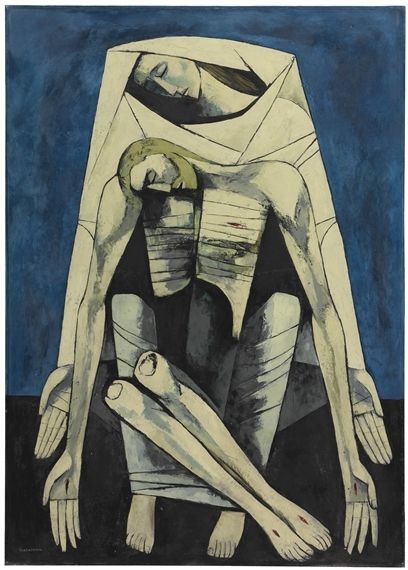
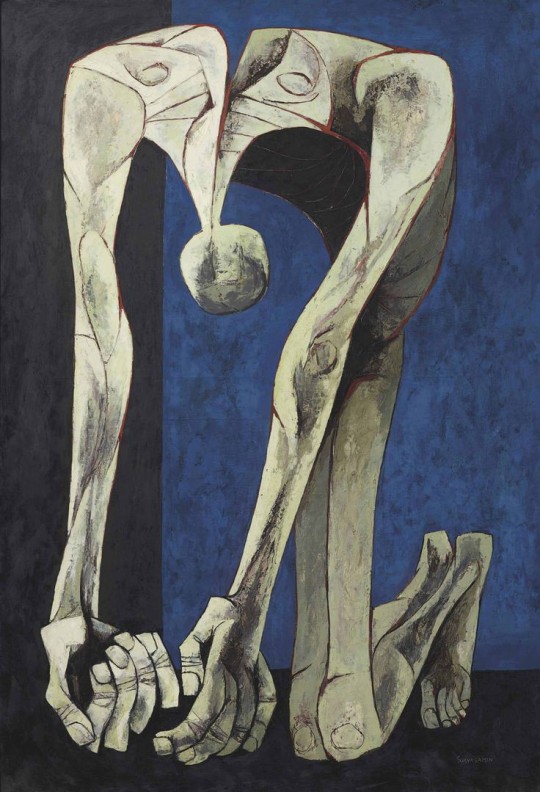

"Pintar es una forma de oración al mismo tiempo que de grito...."
Oswaldo Guayasamín.
Arte: Oswaldo Guayasamín.
Ecuador, (1919) - Estados Unidos, (1999). Importante pintor y escultor latinoamericano.
Movimiento: indigenista, expresionista.
134 notes
·
View notes
Note
Hiya Jo, sorry to come to you for this, but your post on Maya Knuckles was so cool I had to ask. You seem good at researching stuff, do you have any tips on looking for sources on specific groups of people? I've been struggling on finding good resources on indigenous groups from brasil... (I'm brazilian myself but i dont know where to start)
I wouldn't say I'm good at research, as I think I'm more insanely curious and just lucky LOL. A lot of times when I try to search for specific things I try absolutely everything until I stumble on whatever I was looking for!
But usually I start with a quick basic skim-read on whatever google gives you when you look up whatever your looking for. Most often then not it'll probably give a wikipedia page, some related news articles and some unsourced pages. A lot of times I won't use any of these, but it's a good way to get a feel for what you'll need to keep an eye for.
What I mean is that sometimes just looking for the main subject of the research wont actually give you what you're looking for. For example, when I was looking for Mayan stuff, it kept giving me Inca and Aztec info, which is cool, but wasn't what i was looking for. But since these 3 were usually grouped together, looking for Inca and Aztec books/resources actually helped me a bunch into finding what I was looking for, and more! So keep an eye out on how the subject you're looking for is COMMONLY described, what's usually associated to it, what people talk about the subject etc.
Then you can go actually searching for thing now, I recommend using DuckDuckGo! And always check if they got a source. Plenty of articles will say things that they've seen on other articles, which maybe are true! but then you always run the risk of getting incorrect facts. So always check, if it's not sourced, run another search with the info and see if another article has a source.
When you do find an article/book with a source THEN you can fall down the rabbit hole! No joke one sourced article can lead you to 5 sources, which most probably also have sources. So from there it's pretty easy to search up on references.
If you run into a dead end and still hasn't found what you're looking for I recommend checking what the wikipedia page is citing as sources. You might not be able to access everything there, but some links should be able to redirect you to somethings.
In terms of paywalled scientific articles, disabling javascript usually works (right click on the page -> inspect element -> find the gear on the top right of the window it just showed up -> scroll down until you see a checkbox saying "disable Javascript" -> and refresh page). But if that doesn't work, Sci-Hub is fucking amazing. Just put down your ref or DOI and voilá!
For books I recommend checking the Internet Archive! They usually have what you're looking for, but also half of the time you can just type "Book name PFD" and it'll usually come up after a few search pages. Just make sure you know how to download stuff without getting a virus in you PC.
Reverse image search can also be pretty useful if you find an image related to the subject, since you can link up to other articles/blogs.
If you're STILL running in dead ends, switching up languages can help (probably not your case since your brazilian and most likely already searching in portuguese but yknow). Google translate extensions can really help looking into pages with languages you don't know! It's not perfect but it might help you get a gist of it.
And lastly if you want to know more about Indigenous people from Brazil, I got a couple of reccomendations (most in portuguese btw)!
Centro de Referência Virtual Indígena
Probably the BIGGEST resource on historical and political information on Indigenous groups. It hosts around 2,3 million documents ranging from bills passed, to personal diary entries. (aaaaand can link up to a lot of other cool resources)
Observatórios dos Direitos e Políticas Indigenistas
Translated from their website: OBIND aims to obtain and systematize quantitative and qualitative data on territorialization processes, territorial management, interethnic conflicts, human rights and quality of life of indigenous peoples and populations in reserved areas or in urban contexts, in order to enable visibility, comparability, evaluation and guidance for indigenous policies and promotion of their rights, notably those pertinent to respect for their uses, customs and traditions and the exclusive enjoyment of the lands they traditionally occupy, recognizing for this the sine qua non condition of promoting indigenous autonomy and overcoming guardianship as assimilationist legacy.
Indígenas pela Terra & Vida
Youtube playlist about many different Indigenous people recounting their experiences and narratives.
GENOCÍDIO INDÍGENA E POLÍTICAS INTEGRACIONISTAS: demarcando a escrita no campo da memória
Book titled: INDIGENOUS GENOCIDE AND INTEGRATIONIST POLICIES: demarcating writing in the field of memory
#hope this helps anon!#i want to rec also Estou Aqui. Sempre Estive. Sempre Estarei.#but i couldnt find a pdf of it to give it#one day ill try to scan it
36 notes
·
View notes
Text
I’m mostly typing this for myself to help process and organize my thoughts but… feel free to read if you want, especially if you have been annoyed lately too.
I’m cutting my ties with Call of Duty as a fan of the games.

Prepare for my unsolicited thoughts under the cut:
This game has always had shady politics and racial discourses. This is known, lol. It has always depicted Arabs, Eastern Europeans, and Latin Americans as caricatures, even if sometimes they sometimes succeeded in portraying their countries as being the victims of European and U.S. imperialism. But in light of the rapid intensification of violence toward Palestinians with the genocide in Gaza, this tendency just leaves a worse taste in my mouth. While the gameplay and plot structure for the new BO game next year will probably be better than MWIII, I have low hopes with how they’ll portray the goddamn Gulf War. The fact they've added an Israeli operator called "Doc" to MWIII in this particular moment in history tells me all I have to know about where Activision stands as a company.
Furthermore, the last Modern Warfare campaign was so bad, it just signaled to me once and for all that Activision does not care about the future of their games or the legacy of any of their previous good games. I’ve mostly been playing Zombies, not even traditional MP / Warzone. But even then, it’s easy for me to get burnt out playing Zombies. And Zombies is not worth the 100 dollars I paid thinking the campaign would be more enjoyable. And season’s 1 battle pass that came with the 100-dollar edition of the game is awful in my opinion.
Not to mention, the voice actors of both the Modern Warfare and Black Ops series have been either totally racist or highly indifferent about the genocide in Gaza. First, Barry Sloane's tone-deaf Beatles post about "peace" he posted on October that he quickly deleted was more insensitive than I think he even realizes. Samuel Roukin liking a racist article that equates calls decolonization as a "false narrative" was despicable. Of course, that article targets Palestine specifically in its racism, but it also indirectly charges all Third World countries with its accusation of their independence and claims to sovereignty as being "a false narrative." As someone who is of both Latin American and Asian descent and whose countries of origins had to fight for independence more than twice (!!), I cannot accept that.
Then Claudia—a woman of Lebanese descent—and Elliot—a queer black man—encouraging and offering condolences to an ex-IOF soldier was downright evil. The IOF actively bombs Lebanon as part of their current genocidal campaign. It has waged brutal wars against the Lebanese people in the 1980s & 2000s [x] [x]. And it has carried out both anti-Black violence [x] and sexual violence—including against Palestinian men and women [x] [x], and it engages in its frequently-exposed pinkwashing [x]. Rather than allying with Lebanese, queer, and Black people who have been victims of Israeli/Zionist violence, Claudia & Elliot as people with major platforms instead are disappointingly choosing to legitimize Zionist propaganda.
I don't know a lot about Julian, Warren, Neil or Alain's stances on this genocide, but I never take silence in the face of genocide or war to be a good sign. Lastly, since Oct 7, María Elisa Camargo (more like caga'o) posted her support for Israel, equating Palestinian existence and resistance with "terrorism." I already did not like her for engaging in indigenista discourses and tropes and for seemingly being very nonchalant about playing the role of a narco-terrorist, trying to girl-bossify a very real source of fear & terror to contemporary Latin American and Mexican people's lives. This was not surprising for her, but it's still worth highlighting.
In terms of Black Ops actors, the former actor for Frank Woods also made incredibly shitty comments in a live stream about the genocide, talking about a so-called "Middle Eastern mentality," (essentializing all Middle Easterners, really), practically equating all Palestinians with Hamas, and roughly stating that people keep on going further back in history to justify their acts of violence—and I'm sure he was not just referring to Israelis weaponizing the Holocaust to commit atrocities against Palestinians. Like many other people, he gives the impression that he dismisses Palestinians and Arabs as incapable of producing a coherent political thought, and that they only resort to violence out of instinct or because of their religion (which is a gross idea—Islam is not a religion of violence at all!)
Again, I didn't have much expectations for Call of Duty to be anti-Zionist, let's be real. But I see these actors as creatives whose literal jobs are to empathize with other people's stories and experiences as part of their work. The fact that they're trained to put themselves in another person's shoes but are incapable of putting themselves in the shoes of Palestinian people right now, when nearly 20,000 have been recorded as killed—and many more injured or displaced—is very telling.
Anyone who knows this blog knows I have formed a lot of beef with other COD blogs for stuff like fanfic tropes, sexual politics, and about the idea of watching playthroughs vs. playing the game. For once, I'm actually relieved and oddly glad most of this fandom has rallied around the idea that Palestine is not the villain, and that we almost all understand that what Israel's doing is unacceptable, and that these actors and creative industry workers have a duty as humans to stand with victims of genocide and to call out crimes against humanity. For this, I actually have to commend this fandom. We're so trivial about shit like fanfic tropes and headcanons, but I'm glad we have our heads on straight for things that truly matter—like real life war and mass violence.
Honestly, the last straw today—although much minor in its gravity compared to genocide apologism—was Barry's childish behavior toward COD fans on twitter who expressed that they agreed with Christopher Judge's joke at The Game Awards last night that the MWIII campaign was too short. You do not get to talk down, mock, or be childish to your fans when they give you feedback on a public platform as an actor. Judge did not even attack the quality of the game or the VAs' performances—he only joked about the game's super short length. Yet, Barry chooses to act out on Twitter because of these harmless jokes. He seems to care more about protecting his ego as "Captain Price's actor" than about the quality of the game or story that fans are receiving and sometimes paying upwards of 100 dollars for.
I thought to myself, okay, this is just one actor letting his ego get to him. That's not that extraordinary. But the fact that COD devs on Twitter today also starting getting defensive about the jokes and trying to excuse the shitty game they produced? That truly showed me that the horrible launch of the campaign and of MP that happened with MWIII was not a learning opportunity for these studios or devs, but rather only made them stick their heads further up their own asses.
I have little faith in this franchise and honestly am not enjoying it, both in terms of game play and the political discourses coming from its creators. After the Season 1 BP is completed (because I fucking paid for it—sadly), I will be planning to uninstall and shelf the game. If I ever play a COD game in the future, it'll be after it goes on a sale because I won't be paying full price. But the thought of giving this company any more money turns me the fuck off right now.
I also realize I'm co-admin for @dailycallofduty and I will still be participating in running it. I'll be promoting the actors' signings less and promoting the game's new content less. Nonetheless, I'll still be reblogging posts that dailycallofduty is tagged in, like art, graphics, and gifs. On my personal blog, I'll still be reblogging COD gifs that I'm tagged in by friends & mutuals. Just don't be expecting more gifs from me. Not that there were many great scenes to make gifs from this new game anyway.
If you made it this far, thanks for reading.
Here are some useful ways to advocate for Palestinians:
Donate to Doctors Without Borders, where in Gaza they are providing medical and psychological assistance to people affected by the ongoing conflict.
Tell Congress: Support the Ceasefire Now Resolution (call now w/ a script)
Donate to Palestine Legal, an org dedicated to defending and advancing the civil rights and liberties of people in the US who speak out for Palestinian freedom.
Donate to National Students for Justice in Palestine, which supports over two hundred Palestine solidarity organizations on university campuses across occupied Turtle Island (U.S. and Canada).
Read DecolonizePalestine's Reading List to expand your knowledge on all things Palestine
Find a Palestine Protest near you.
Support the BDS Movement, a Palestinian-led movement for freedom, justice and equality that calls for Boycott, Divestment and Sanctions against Israel until it complies with international law and universal principles of human rights.
46 notes
·
View notes
Text
MITOS EN AMÉRICA

MITO 19: EL OLOR DE LOS ESPAÑOLES
Que levante la mano quien haya leído que los españoles olían mal porque no se bañaban y que Moctezuma recibió a Cortés con flores por su mal olor…
Este es un mito de reciente creación, a diferencia de otros que tienen algunos siglos de antigüedad, y es mito creado por los “indigenistas” para desvalorar lo español con su falta de higiene y enorgullecerse de la buena higiene que tenían los indígenas, lo cual ambas cosas son absolutamente falsas, ni los españoles eran tan “cochinos” ni los indígenas eran tan limpios…
De hecho, la única referencia histórica que hay en cuanto al mal olor, es una queja de los españoles sobre los indígenas como veremos a continuación.
Para empezar los indígenas en general, cuando tenían contacto con alguna etnia u otra civilización, tenían por costumbre dar regalos y presentes, los sahumaban y les entregaban collares con flores y otros elementos como muestra de bienvenida, por lo tanto, el relato de recibir a Hernán Cortés con flores por su mal olor es totalmente falso.
Si tiramos de referencias históricas de la época, Bernal Díaz nos describe como en cada lago o río que encontraban los españoles, estos aprovechaban para refrescarse y asearse. Era un regocijo pues pasaban muchos días sin encontrar agua.
Las personas sólo conocen las descripciones bonitas que Bernal decía sobre Tenochtitlan, pero desconocen que la ciudad estaba dividida por barrios, unos aristocráticos (de los que habla la gente) y otros más pobres, los suburbios de Tenochtitlán eran moradas lacustres, chozas construidas sobre estacas, como palafitos prehistóricos repletos de inmundicia.
Bernal también nos cuenta los hábitos higiénicos de Moctezuma, los cuales los indigenistas los toman como algo genérico, algo que hacían todos los indígenas, lo que es absolutamente falso, la mayoría de los indígenas no tenían agua potable ni corriente, ni hábitos higiénicos y apestarían igual que cualquier otro español pobre, pues sólo los ricos y los nobles tenían ciertas comodidades.
Las únicas referencias históricas al mal olor, también nos la cuenta Bernal Díaz, en la que nos dice que los españoles se quejaban del mal olor que había en los Templos, donde el hedor era más insoportable que en los mataderos de castilla. Pero además también nos cuenta el mal olor de los sacerdotes mexicas, los cuales se untaban su cabello con la sangre de sus víctimas y no se lo lavaban jamás provocando a su alrededor un olor nauseabundo, un olor al que los mexicas ya estaban acostumbrados, pero no los españoles, incluso nos cuenta que Cortés se abstuvo de ordenar que pelaran y lavaran a los sacerdotes.
Como podéis comprobar un mito o mejor dicho una falsedad que cae por su propio peso, y es que las mentiras tienen las patas muy cortas.
FUENTES:
- Historia Verdadera de la Conquista de la Nueva España, Bernal Díaz del Castillo.
6 notes
·
View notes
Text
youtube
Entrevista com o arqueólogo, explorador e linguista Luiz Caldas Tibiriçá
Foi por intermédio do jornalista, escritor, ufólogo e explorador espanhol Pablo Villarrubia Mauso que pude ter a honra de conhecer e entrevistar o grande músico, compositor, folclorista, explorador, indigenista, antropólogo, arqueólogo, linguista e escritor Luiz Caldas Tibiriçá (1913-2006) em sua casa em Pinheiros, zona oeste de São Paulo, em 17 de fevereiro de 1997.
Na ocasião, Tibiriçá estava com 83 anos, mas ainda exibia invejáveis lucidez, disposição e vigor físico, tanto que voltaria a participar de expedições arqueológicas pelo sertão brasileiro. Entre inúmeras obras, entre eles o livro de contos O Fruto Proibido (São Paulo, João Scortecci, 1995), com que nos presenteou, Tibiriçá era autor de três monografias inéditas (resultantes de 15 anos de pesquisas), de um monumental Dicionário Tupi-Guarani (que confirmaria que o tupi era o mesmo idioma usado pelos hititas da Anatólia), e de um não menos monumental dicionário de raízes primitivas de estudos comparativos (que demonstrariam a existência de uma língua-mãe pré-histórica que teria se difundido e se tornando universal).
Estes são apenas os primeiros 12 minutos da entrevista, já que infelizmente o restante ficou com o som bastante prejudicado, lembrando que usávamos na época gravadores analógicos de fita k-7. Mas você pode tentar ouvir o conteúdo integral, audível em muitos trechos, aqui:
https://rumble.com/v40woxn-entrevista-com-o-arquelogo-explorador-e-linguista-luiz-caldas-tibiri-verso-.html
Torne-se meu patrono no Patreon e tenha acesso a matéria completa sobre Luiz Caldas Tibiriçá, bem como a centenas de conteúdos exclusivos: https://www.patreon.com/posts/94514983
Ou torne-se membro de minha comunidade no Patreon e tenha acesso a todos os meus posts públicos sem pagar nada por isso: https://www.patreon.com/suenaga
🎬 Seja membro de meu Canal no YouTube e receba benefícios: https://www.youtube.com/ClaudioSuenaga/join
Inscreva-se no Rumble e não perca mais nenhum vídeo: https://rumble.com/register/suenaga/
Site Oficial: https://claudiosuenaga.yolasite.com
Leia e baixe aqui todos os meus trabalhos gratuitamente: https://suenagadownloads.yolasite.com/
Blog Oficial: https://www.claudiosuenaga.com.br/ ou https://lastdrinkinthedesertofthereal.tumblr.com/
Medium: https://medium.com/@helpsuenaga
Facebook (perfil): https://www.facebook.com/ctsuenaga
Facebook (página Expondo a Matrix): https://www.facebook.com/clasuenaga
Instagram: https://www.instagram.com/claudiosuenaga
Pinterest: https://br.pinterest.com/claudiosuenaga
Twitter: https://twitter.com/suenaga_claudio
GETTR: https://gettr.com/user/suenaga
E-mail: [email protected]
✅ Adquira "Encuentros cercanos de todo tipo. El caso Villas Boas y otras abducciones íntimas", meu primeiro livro traduzido em espanhol, na Amazon:
Amazon.com (envios a todo o mundo desde os EUA): https://amzn.to/3Lh93Lb Amazon.es (envios a todo o mundo desde a Espanha): https://amzn.to/3LlMtBn Amazon.co.uk (envios dentro do Reino Unido): https://www.amazon.co.uk/-/es/Cl%C3%A1udio-Tsuyoshi-Suenaga/dp/B0BW344XF1/ Amazon.de (envios dentro da Alemanha): https://www.amazon.de/-/es/Cl%C3%A1udio-Tsuyoshi-Suenaga/dp/B0BW344XF1/ Amazon.fr (envios dentro da França): https://www.amazon.fr/-/es/Cl%C3%A1udio-Tsuyoshi-Suenaga/dp/B0BW344XF1/ Amazon.it (envios dentro da Itália): https://www.amazon.it/-/es/Cl%C3%A1udio-Tsuyoshi-Suenaga/dp/B0BW344XF1/ Amazon.co.jp (envios dentro do Japão): https://www.amazon.co.jp/-/es/Cl%C3%A1udio-Tsuyoshi-Suenaga/dp/B0BW344XF1/
✅ Adquira aqui meu livro "As Raízes Hebraicas da Terra do Sol Nascente: O Povo Japonês Seria uma das Dez Tribos Perdidas de Israel?" https://www.lojaenigmas.com.br/pre-venda-as-raizes-hebraicas-da-terra-do-sol-nascente-o-povo-japones-seria-uma-das-dez-tribos-perdidas-de-israel
✅ Adquira “Illuminati: A Genealogia do Mal”, bem como meus dois primeiros livros, "Contatados: Emissários das Estrelas, Arautos de uma Nova Era ou a Quinta Coluna da Invasão Extraterrestre?" e "50 Tons de Greys: Casos de Abduções Alienígenas com Relações Sexuais - Experiências Genéticas, Rituais de Fertilidade ou Cultos Satânicos?", diretamente com o editor Bira Câmara pelo e-mail [email protected]
✅ Adquira os meus livros em formato e-book em minha loja no Patreon: https://www.patreon.com/suenaga/shop
2 notes
·
View notes
Text
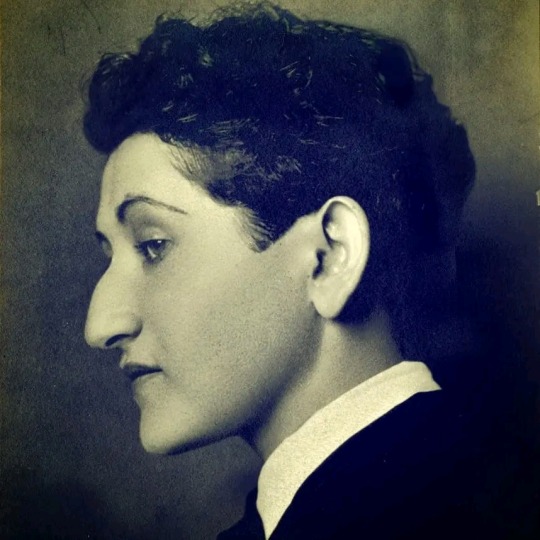

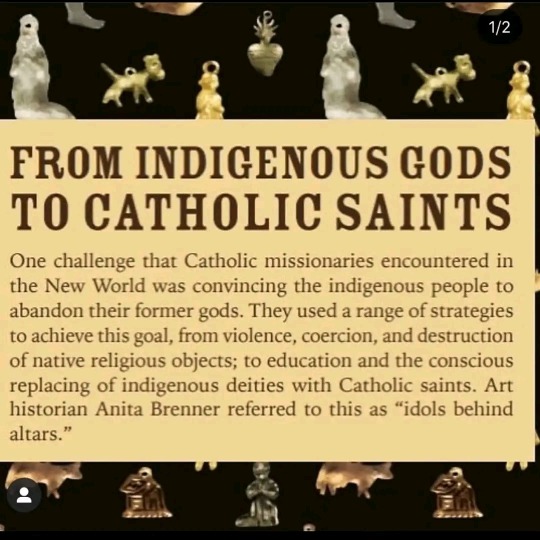
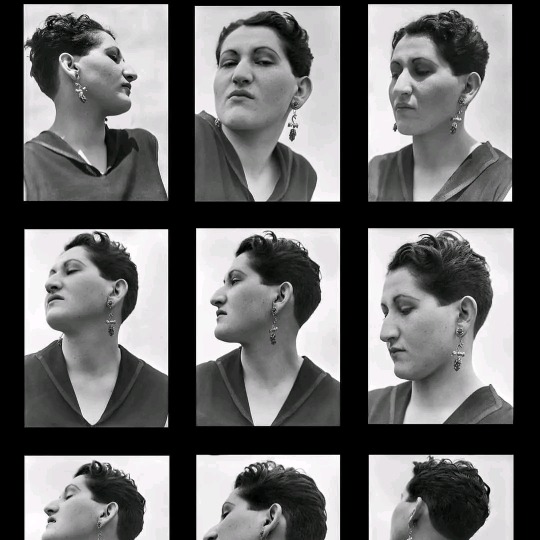
I think it's important to repost. First posted in August 2017 on Art by Women - Women in Arts
fb page: About Anita Brenner
The Revolutionary Mexican-Born, Jewish-American Woman Who Exposed Rivera, Kahlo, and Siqueiros to the World, BY Alan Grabinsky, 08.01.17
"As a journalist, an anthropologist, a cultural promoter and a traveler,
Anita helped position the cultural movement called the Mexican Renaissance in the United States.
Her hybrid identity allowed her to crisscross national boundaries, earning an important role as a type of cultural diplomat."
Orginal post
Anita Brenner (born Hanna Brenner; 13 August 1905 – 1 December 1974) was a transnational Jewish scholar and intellectual,
who wrote extensively in English about the art, culture, and history of Mexico.
She was born in Mexico, raised and educated in the U.S., and returned to Mexico in the 1920s following the Mexican Revolution.
She coined the term 'Mexican Renaissance', "to describe the cultural florescence [that] emerged from the revolution."
As a child of immigrants (Litva), Brenner's heritage caused her to experience both antisemitism and acceptance.
Fleeing discrimination in Texas, she found mentors and colleagues among the European Jewish diaspora living in both Mexico and New York, but Mexico, not the US or Europe, held her loyalty and enduring interest.
She was part of the post-Revolutionary art movement known for its indigenista ideology.
Legacy
Brenner remains an important figure in post-Revolutionary art and history in Mexico, an enthusiast for Mexican art and culture and an active advocate for its importance to a U.S. audience.
A prolific scholar and journalist herself, she has been the subject of studies by Mexicanist scholars.
The Skirball Cultural Center in Los Angeles plans an exhibition focusing on Brenner in 2017-18, entitled "Another Promised Land: Anita Brenner's Mexico."
.
.
.
#AnitaBrenner #HannaBrenner #herstory #MexicanArt #MexicanHerstory #womeninarts
#Revolutionary #MexicanBorn #JewishAmerican #JewishAmericanWoman #Siqueiros #anthropology #culturescience
2 notes
·
View notes
Text
Lula dá poder de polícia à Funai por decreto
Pelo Decreto Nº 12.373, de 31 de janeiro de 2025, os “indigenistas” jamais treinados ou autorizados pelo povo brasileiro para isso, podem prender e arrebentar quem eles julgarem incursos nos 7 artigos e dezenas de parágrafos que lhes atribuem poderes de impor de avisos de infração e medidas coercitivas a “medidas cautelares” do calibre dessas que o STF aplica a torto e direito.
0 notes
Text
Bruno e Dom: MPF recorre para levar acusado para o banco dos réus
O Ministério Público Federal (MPF) recorreu ao Superior Tribunal de Justiça (STJ) para anular a decisão que beneficiou um dos três réus acusados pelo assassinato do indigenista Bruno Pereira e do jornalista britânico Dom Phillips, na Terra Indígena Vale do Javari, no Amazonas, em 2022. Apresentado nesta quarta-feira (29), o recurso busca levar o pescador Oseney da Costa de Oliveira para…
0 notes
Text
#Inmortales #FeriasyFestivales
📣 114° ANIVERSARIO DEL NACIMIENTO DEL ESCRITOR INDIGENISTA, JOSÉ MARÍA ARGUEDAS ALTAMIRANO📜✒ 📇🎂🥳🎈🎉🤩
🎤 Conversatorios: «El Idioma Iconográfico del Perú» a cargo de Natividad Vásquez y «El Runa Simi» a cargo de Walter Chalco.
💃Música y Danza: «Celebración Artística» a cargo del Centro Universitario de Folklore UNMSM (CUF), Estudiantina UNMSM y Elenco de Danzas y Conjunto de Zampoñas. 🎶

📌 CELEBRACIÓN:
📆 Miércoles 29 de Enero
🕕 6:00pm.
🏘 Salón de Recepciones del Centro Cultural de San Marcos (av. Nicolás de Piérola 1222, Parque Universitario - Centro de Lima)
🚶♀️🚶♂️ Ingreso libre
0 notes